Are you obese or overweight? Ways for Checking!
Many factors contribute to a person’s weight. These factors include behavior and habits, family history and genetics, and diet and metabolism. However, it is hard to measure these factors.
Therefore, a decision either to gain or lose weight can be assessed by combining BMI, Waist Circumference and Number of Risk Factors.
| BMI
Body mass index (BMI) is a measure of body fat based on height and weight. BMI can be a good gauge of your risk for diseases that can occur with more body fat. Basically, the higher your BMI, the higher your risk for certain diseases. |
due to an excess amount of body fat. The term ‘obesity’ refers to the condition of being overweight
In Canada, one in four adults and one in 10 children
are clinically diagnosed obese.
Approximately more than six million Canadians
are in need of help for managing their body weight.
Obesity is the number one to cause other serious health issues;
this means more than six million Canadians are exposed to higher risk of health conditions such as type 2 diabetes, high blood pressure, stroke, arthritis and cancer.
Waist Circumference
Measuring waist circumference helps screen for possible health risks that accompany overweight and obesity. To correctly measure your waist, stand and place a tape measure around your middle, just above your hipbones. Measure your waist just after you breathe out.
People with waist size greater than 35 inches for women or greater than 40 inches for men are considered to be at risk for heart disease and type 2 diabetes.
Risk Factors
Along with being overweight or obese, the following conditions will put you at greater risk for heart disease and other conditions
- High blood pressure (hypertension)
- High LDL cholesterol (“bad” cholesterol)
- Low HDL cholesterol (“good” cholesterol)
- High triglycerides
- High blood glucose (sugar)
- Family history of premature heart disease
- Physical inactivity
- Cigarette smoking
Lose Weight
Losing weight is strongly recommended if you have either;
1) a score of BMI greater than or equal to 30 , or
2) a score of BMI of 25 to 29.9 and have two or more risk factors.
Even a small weight loss (e.g. 5-10% of your current weight) will help lower risk of developing diseases associated with obesity.
People, who are overweight with moderate waist measurement and fewer than two risk factors, may have lower risk to develop obesity-related diseases. However, our body tends to store more energy and burn less as we age. So it is important to start increasing the amount of physical activity up to moderate level even if you do not fall under obese category

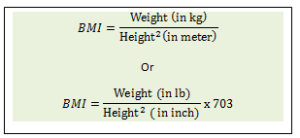
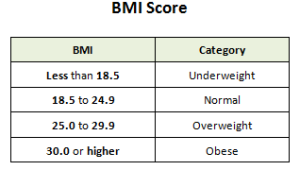
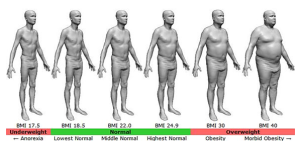
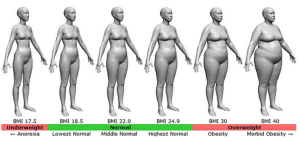
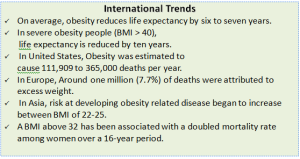
Leave a Comment
You must be logged in to post a comment.